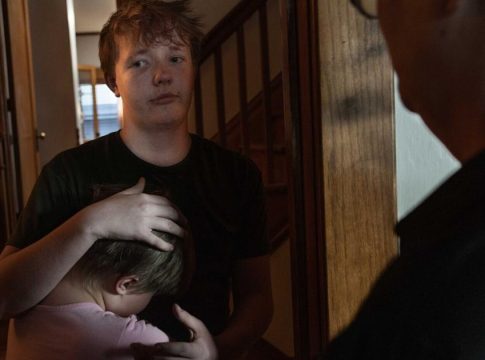Addressing Youth Mental Health: A Growing Concern
The Reality of Mental Health Crises in Schools
In recent years, the mental health of children and adolescents has become a pressing concern for educators, parents, and healthcare professionals alike. Stories like that of 11-year-old Tristan Lorenz highlight the profound struggles young people face. During a challenging moment in a Zoom call with school staff, Tristan experienced overwhelming thoughts, including feelings of worthlessness and the urge to self-harm. Sadly, he is not alone in these experiences.
Nationwide, the incidence of anxiety, depression, and suicidal thoughts among youth is on the rise. Data reveals that approximately 40% of high school students reported persistent sadness, and the rate of youth contemplating suicide has increased sharply. This escalating mental health crisis has prompted urgent calls for improved resources and support within school systems.
The Importance of School-Based Mental Health Resources
Schools are increasingly seen as frontline responders in addressing mental health needs. As places where children spend much of their time, they offer unique opportunities to provide essential support. Unfortunately, funding for these vital services is often inadequate. Recent cuts to federal and state mental health initiatives have raised concerns among educators and mental health advocates.
- Statistics to Consider:
- Depression among Wisconsin youth rose by 42% in the last decade.
- Nearly one in four girls reported serious suicidal thoughts in 2023, up 46% from 2013.
These numbers emphasize the urgency of increasing mental health resources in schools. Many districts are grappling with inadequate staff-to-student ratios, leading to unfulfilled needs and crises going unnoticed.
Community Support and Innovative Solutions
While challenges abound, some districts are finding creative ways to provide support through school-based mental health programs. Collaborating with community health providers, schools can facilitate therapy sessions on-site, making mental health care more accessible. These programs can significantly reduce waiting times for therapy compared to traditional community services.
Practical Strategies for Support
- Open Communication: Encourage children to express their feelings and ask for help when needed.
- Empower Youth: Teach children to advocate for themselves and seek assistance from trusted adults.
- Emotional Literacy: Use tools like journals or emotion charts to help kids identify and process their feelings.
- Mindfulness Practices: Simple techniques such as deep breathing or nature walks can help create emotional balance.
Recognizing Signs of Distress
Parents and educators can play pivotal roles in identifying when a child may need support. Look for signs such as:
- Changes in behavior or mood
- Withdrawal from friends or activities
- Sudden changes in academic performance
- Expressions of hopelessness or self-doubt
Encouraging Positive Outcomes
Tristan’s journey highlights not just the challenges but also the hopeful improvements that effective mental health support can bring. With therapy, he has learned coping skills that empower him to better manage his emotions and engage more positively with those around him.
In his own words: "You should advocate for yourself. If you’re not okay, tell someone."
Moving Towards a Healthier Future
The need for comprehensive mental health care in schools is undeniable. Awareness and advocacy at local, state, and national levels can facilitate positive change.
As we work towards better support systems, let us remember that every child deserves access to mental health resources that nurture their wellbeing. Creating safe spaces for open dialogue about mental health is a vital step in ensuring that no child feels alone in their struggles. With collective action, we can translate these challenges into opportunities for growth and healing.
If you or someone you know is struggling, don’t hesitate to reach out for help. Addressing mental health seriously can pave the way for a brighter, more connected future for our youth.

Covers wellness, nutrition, mental health, and daily life tips.
Bio: Talia brings a background in health journalism and holistic living to help readers live better, one tip at a time.

